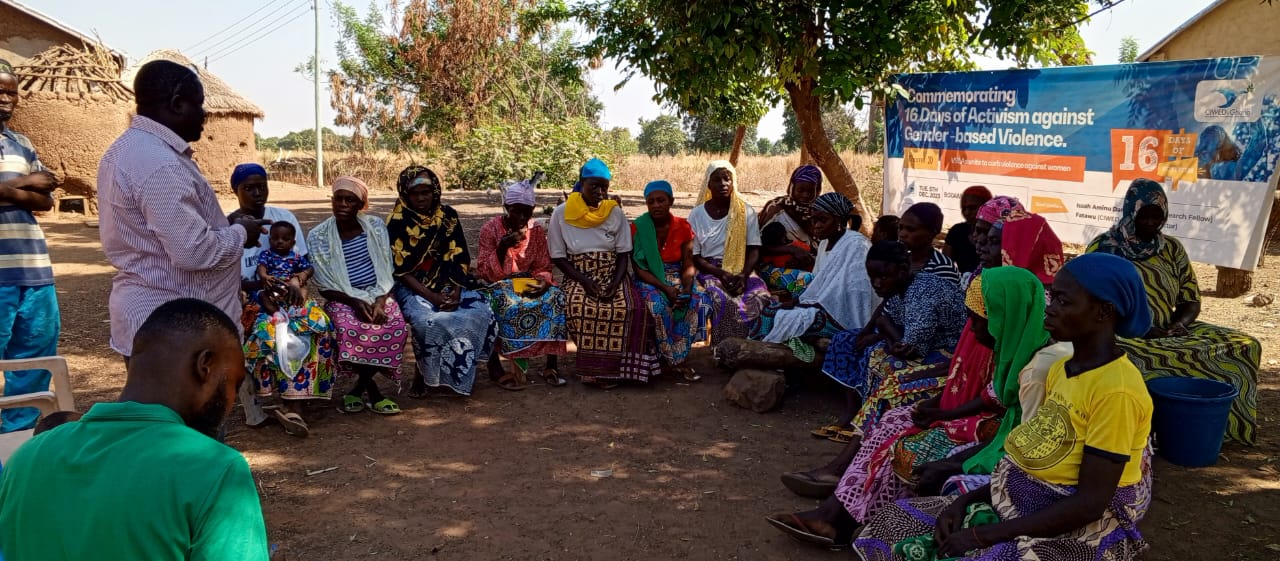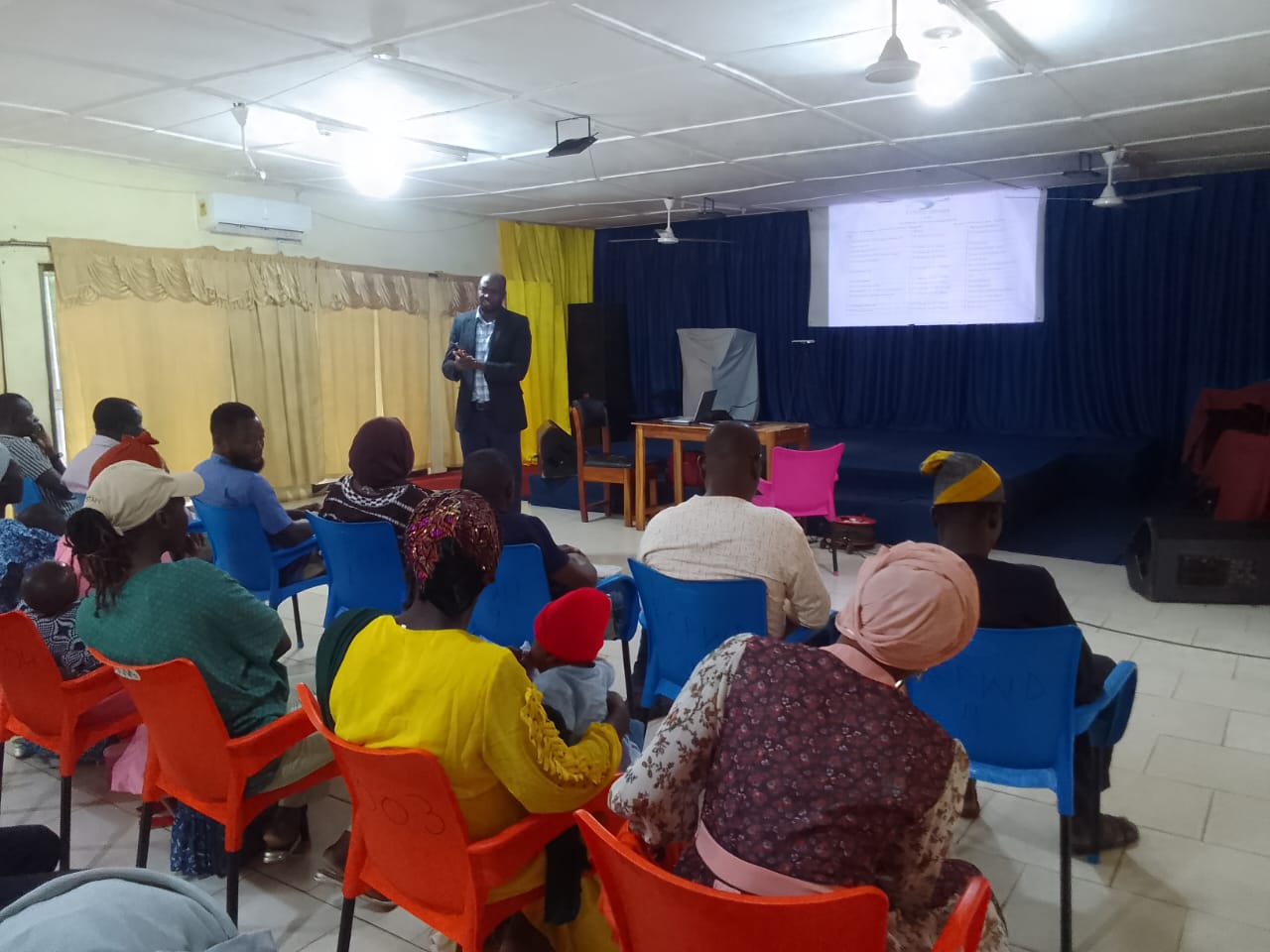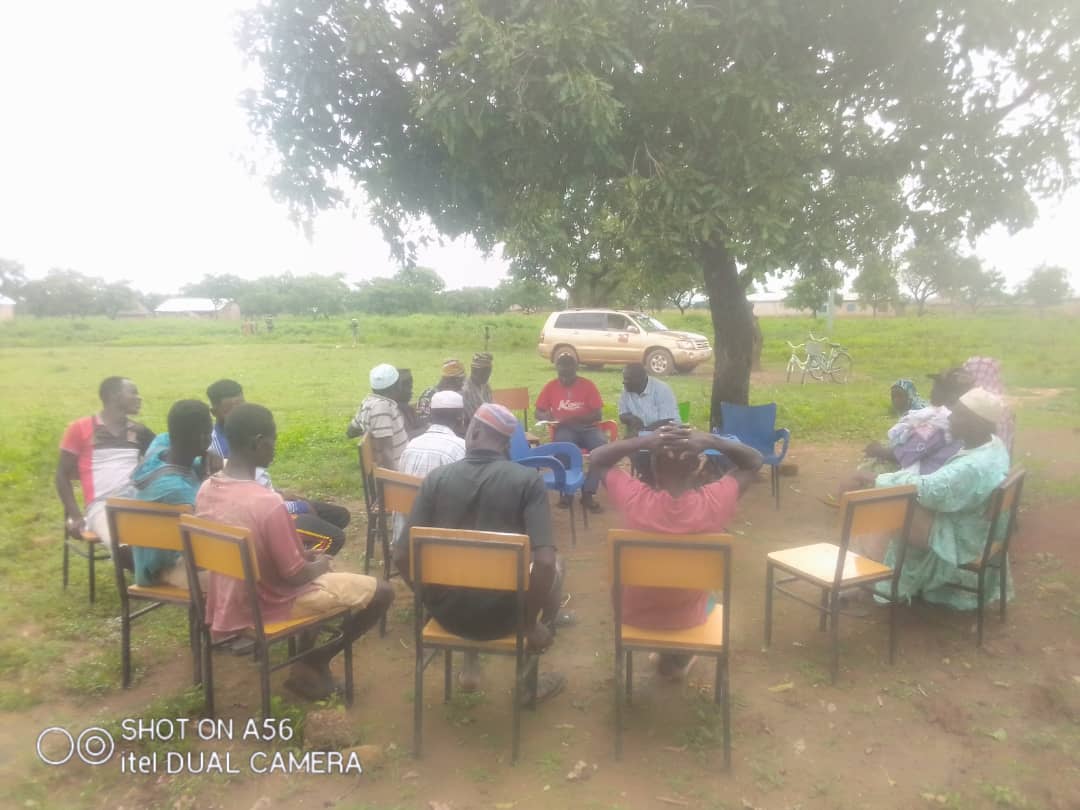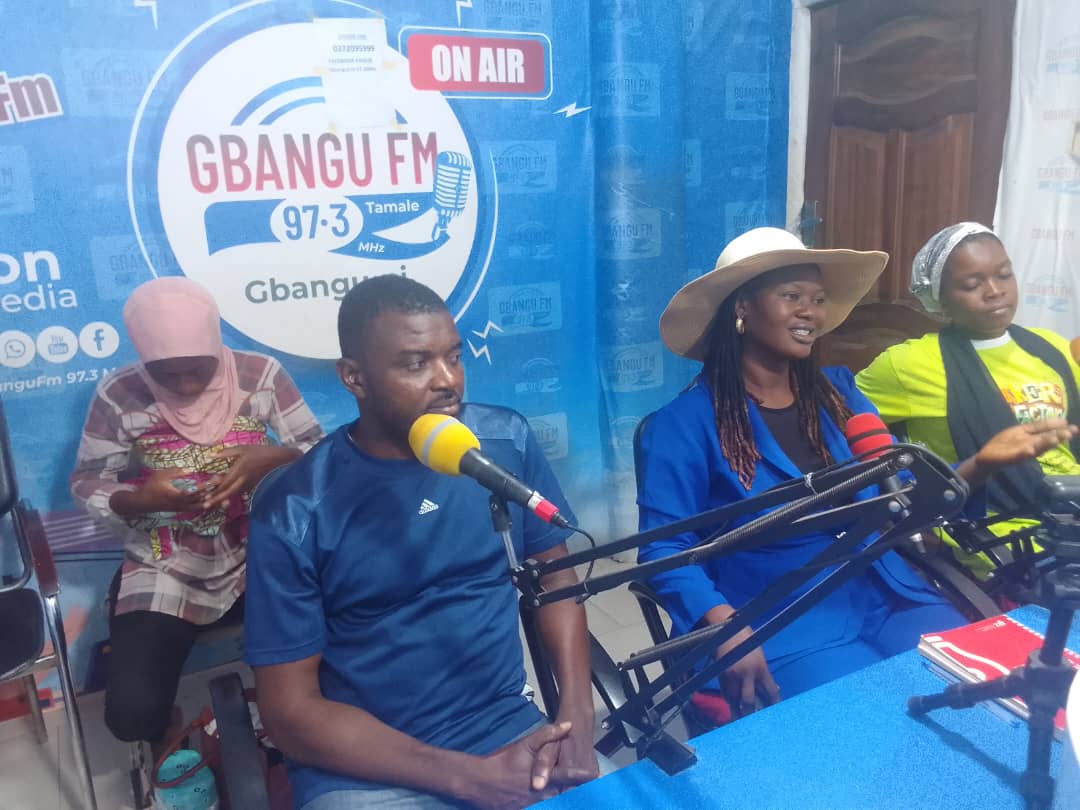In commemoration of the 16 days of activism against Gender-Based Violence in Digu community, the CIWED-Ghana team, led by Executive Director Mr. Baako Abdul-Fatawu and Gender and Child Protection Manager Miss Bashiru Mardia, engaged with the VSLA women group of the community in an important conversation. This event, held on December 5th 2023, aimed to shed light on gender-sensitive issues and emphasize the significance of economic independence and self-reliance as potent tools in reducing or preventing Gender-Based Violence (GBV).
The session commenced with opening remarks by Mr. Iddris Amba, followed by an insightful speech from Mr. Baako Abdul-Fatawu stressing the crucial need to prevent GBV and all forms of violence against women. He highlighted the impact of previous economic empowerment projects within the community and across the district, emphasizing their role in countering and preventing violence against women. Acknowledging the ongoing pandemic, he urged adherence to COVID-19 safety protocols, underlining the importance of these precautions in preventing infections.
Mr. Abdul-Fatawu also encouraged the women to enhance their skills, empowering them to support their spouses in household responsibilities. He emphasized the importance of educating children regardless of gender, breaking stereotypes associated with household roles.
In her address, Miss Bashiru Mardia urged the community women to take their involvement in the VSLA project seriously. She emphasized the need for organization among the groups, enabling them to engage policymakers, hold them accountable, and demand the fulfillment of commitments.
Mr. Abdul-Fatawu concluded by advising unity and collaboration among the women. He emphasized the importance of peaceful coexistence to maximize their participation in VSLA and other economic empowerment projects.
The gathering witnessed the participation of over 35 community women, with other VSLA members expressing their support and gratitude for CIWED-Ghana’s initiatives. They pledged continued support for ongoing and future projects.





